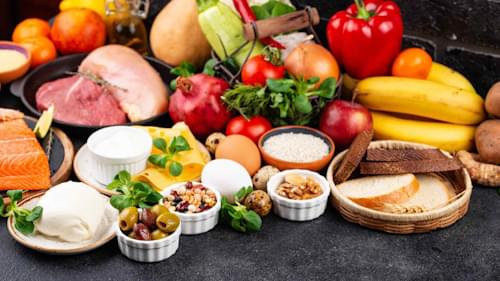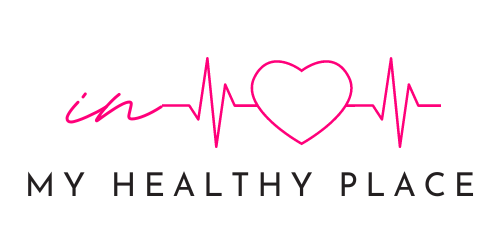A Taste of Health: Exploring the Benefits of the Mediterranean Diet

Want to improve your health? The Mediterranean diet may suit you. Weight loss and heart health are among the health benefits of this popular diet. What's the Mediterranean diet? This complete guide for beginners covers everything you need to know about this delicious and nutritious lifestyle. Prepare for a Mediterranean culinary adventure, from food to a sample meal plan! Grab your apron and dive in!
How does the Mediterranean diet work?
For centuries, Mediterranean people have followed the Mediterranean diet. How does this diet work? Let's explain.
This diet emphasizes fruits, vegetables, whole grains, legumes, and healthy fats like olive oil. These healthy foods contain antioxidants and other nutrients. This eating pattern encourages moderate consumption of lean proteins like fish and poultry while limiting red meat intake. Fish is particularly beneficial due to its omega-3 fatty acids, which have numerous health benefits.
The Mediterranean diet allows small amounts of red wine with meals. Red wine contains polyphenol antioxidants that may benefit heart health when consumed in moderation. The Mediterranean lifestyle emphasizes eating with family and friends rather than rushing. Slowing down aids digestion and mindful eating.
Health Benefits of the Mediterranean Diet
The Mediterranean diet is not just about delicious and flavorful food; it also offers numerous health benefits.
Heart Health

Research has consistently shown that following this diet can help lower the risk of cardiovascular diseases, including heart attacks and strokes.
ne reason for this is that the Mediterranean diet emphasizes consuming healthy fats, such as olive oil and nuts, while limiting saturated fats from sources like red meat. This balance helps lower bad cholesterol levels and promotes overall heart health.
Improved Diabetes Management

Fruits, vegetables, whole grains, legumes, and lean proteins provide this diet with vitamins, minerals, antioxidants, and fiber. These nutrients contribute to improved digestion, boosted immunity, and reduced inflammation in the body.
Research indicates that long-term diseases like type 2 diabetes are less likely to happen to people who eat a Mediterranean diet. This shows that there is a strong link between what you eat and how you take care of your diabetes. This diet may help people with diabetes control blood sugar, reduce insulin resistance, and reduce medication use.
Improve Signs of Depression

iends and family is an integral part of the Mediterranean lifestyle. Additional mental health advantages of this social aspect include stress reduction and well-being. If the Mediterranean way of eating makes you eat more fruits and vegetables, your mental health will improve along with your physical health.
Research showed that fruit and vegetables, especially dark leafy greens like spinach, berries, and cucumber, reduce depression, improve mood, and make people happier. Another study published in July 2020, Clinical Practice and Epidemiology in Mental Health, suggested that a Mediterranean diet may improve mental health and reduce depression symptoms.
Which foods are off-limits in the Mediterranean diet?
The Mediterranean diet discourages processed foods, sugary drinks, refined grains, and red meat. Eat a variety of lean proteins, like fish and chicken, as well as fruits, vegetables, whole grains like quinoa or brown rice, legumes, nuts, seeds, and healthy fats like olive oil. Additionally, the Mediterranean diet limits the consumption of dairy products and encourages a moderate intake of red wine. It emphasizes the importance of consuming fresh, locally sourced ingredients and incorporating physical activity into daily routines.
What's an example of a Mediterranean breakfast?
Greek yogurt with fresh berries and almonds or walnuts to add some crunch is a typical Mediterranean breakfast. You could also have tomatoes or avocado on whole-grain toast drizzled with a bit of extra virgin olive oil.
What can I put in my coffee on a Mediterranean diet?
While sugar-laden flavored creamers are not recommended on the Mediterranean diet due to their high levels of artificial sweeteners and additives, you can opt for unsweetened almond milk or coconut milk as alternatives. These add a subtle creaminess to your coffee without compromising your commitment to the Mediterranean lifestyle.
Which types of bread are acceptable on the Mediterranean diet?
Mediterranean diets benefit from whole-grain bread. Look for low-ingredient and high-fiber varieties. Naturally fermented sourdough bread may be easier to digest. These answers are just the start! There's a lot more to learn about what to eat and avoid when following this healthy diet. Read on to learn how this diet works!
What foods should you avoid eating on the Mediterranean diet?
Mediterranean diets emphasize whole, unprocessed foods. A Mediterranean-style diet doesn't restrict food like other diets but avoids certain foods. These include processed meats such as sausages and hot dogs, sugary drinks and desserts, refined grains like white bread and pasta, and unhealthy fats like butter and margarine. It is also recommended to limit the consumption of red meat and prefer leaner protein sources like fish and poultry instead. Additionally, it is advised to avoid high-sodium foods like canned soups and processed snacks. By avoiding these foods, you can better adhere to the principles of the Mediterranean diet and promote a healthier lifestyle.
What’s an example of a Mediterranean breakfast?
The Mediterranean diet emphasizes whole, unprocessed foods that are rich in nutrients and flavor. A typical breakfast on the Mediterranean diet might include a variety of delicious options. Greek yogurt with berries and honey is one option. The yogurt, berries, and honey provide protein, antioxidants, and sweetness. Smashed avocado and feta on whole-grain toast is another option. Avocado has heart-healthy fats, and feta adds tang. Oatmeal cooked in milk or water with cinnamon and sliced almonds or walnuts is a warm breakfast option. Fiber, healthy fats, and antioxidants start your day. Every Mediterranean meal should include vegetables. Adding sautéed spinach or roasted tomatoes to your eggs can boost their nutritional value.
Can you drink milk on a Mediterranean diet?
Don't worry if you need a morning boost on the Mediterranean diet! Enjoy your daily coffee. Be careful what you add.
Here are some options for incorporating coffee into your Mediterranean diet:
Black Coffee:
The simplest and most authentic way to enjoy coffee on the Mediterranean diet is by drinking it black. This means no sugar or cream are added. While it may take some getting used to if you're accustomed to sweetening coffee, you'll start appreciating the natural flavors over time.
Cinnamon:
If you prefer a touch of flavor in your coffee, try adding a sprinkle of cinnamon instead of sugar or artificial sweeteners. Not only does cinnamon provide a warm and comforting taste, but it also adds some extra health benefits with its antioxidant properties.
Nut Milk:
Nut milk is another option for creamy coffee drinkers. Almond and oat milk are Mediterranean diet-friendly.
Stevia:
Stevia is a good substitute for refined sugar or artificial sweeteners in coffee. Stevia, made from plant leaves, is low in calories and blood sugar.
Remember, moderation is key when enjoying any additions to your coffee while on the Mediterranean diet. Stick to minimal amounts and choose natural options whenever possible!
What brand of bread is best for the Mediterranean diet?
In moderation, bread is a Mediterranean diet staple. Not all breads are equal. Bread should be whole grain and minimally processed for the Mediterranean diet. Look for brands that use whole wheat or whole grain flour as the main ingredient, and avoid those that contain added sugars or preservatives. Opt for artisanal or homemade bread whenever possible, as they tend to be less processed and more nutritious. Remember to enjoy bread in moderation and prioritize other nutrient-dense foods in your diet.
If you're looking for a gluten-free alternative to the Mediterranean diet, consider trying sprouted-grain bread. Sprouting grains increases their nutrient content and may make them easier to digest as well.
This diet requires portion control for all breads. Prioritize fruits, vegetables, legumes, nuts, olive oil, and one or two servings per day.
Do you lose weight fast on the Mediterranean diet?
People follow the Mediterranean diet to lose weight. Mediterranean-style eating has helped many people lose weight, even though it's not the main goal. The main focus of the Mediterranean diet is on overall health and well-being rather than rapid weight loss. However, due to its emphasis on nutrient-dense foods and portion control, many individuals have experienced gradual and sustainable weight loss while following this eating pattern. It is important to note that individual results may vary depending on factors such as activity level, metabolism, and adherence to the diet.
Some studies show a link between the Mediterranean diet and weight loss, but the results can vary depending on your genes, how much you exercise, the size of your portions, and how many calories you eat. Along with this diet, it's important to work out. While there is evidence suggesting that following a Mediterranean-style eating plan can lead to weight loss for some individuals when combined with other healthy lifestyle habits such as regular exercise, it's important to remember that everyone's journey is unique.
A Detailed Mediterranean Diet Food List
The Mediterranean diet offers many tasty, healthy options. This diet emphasizes flavorful, nutrient-rich whole foods. Let's take a closer look at some key components of the Mediterranean diet's food list.
Vegetables
First and foremost, vegetables play a starring role in this diet. Load up your plate with leafy greens like spinach, kale, and arugula. Remember vibrant veggies such as tomatoes, cucumbers, bell peppers, and eggplants; they add color and taste to any meal.
Fruits
Next up on the list are fruits—nature's sweet treats! Enjoy an assortment of berries (strawberries, blueberries), citrus fruits (oranges, lemons), apples, pears, etc.—the options are endless! These provide essential vitamins and minerals while satisfying your cravings for something sweet.
Whole Grains
Whole grains like quinoa, bulgur wheat, and brown rice are staples in the Mediterranean diet. They're packed with fiber, which helps keep you full for longer periods of time. Swap out refined grains for these healthier alternatives to improve digestion and overall health.
Protein
The Mediterranean is rich in legumes like chicken, lentils, and beans, which provide plant-based protein without saturated fat. They can go in soups, salads, stews, and even hummus!
Olive Oil
Remember healthy fats! Mediterranean diet staple: olive oil Monounsaturated fatty acids reduce inflammation and have other health benefits. Use olive oil rather than butter or other unhealthy oils to dress salads.
Fish
This food list includes salmon, mackerel, sardines, and tuna, delighting seafood lovers. Omega-3 fatty acids in these fish promote heart health and anti-inflammation.
Final Words
As you can see, the Mediterranean diet is not a trend. A healthy lifestyle. This diet emphasizes fresh, whole foods and balanced meals, which have many health benefits.
The Mediterranean diet promotes long-term health by lowering heart disease and cancer risk, improving brain function, and managing diabetes. Nutrient-dense foods provide vitamins, minerals, antioxidants, and healthy fats for optimal body function.
Success in the diet depends on consistency.
Enjoy olive oil, seafood, fruits, vegetables, whole grains, legumes, and their health miracles! Start eating these healthy foods today for better health tomorrow and beyond!

